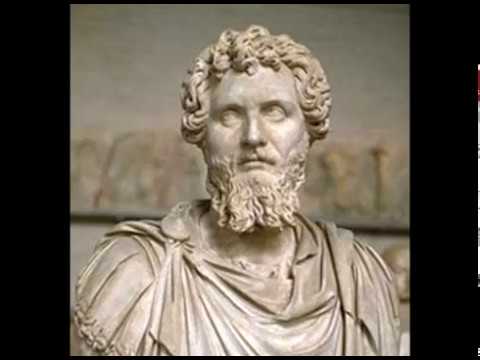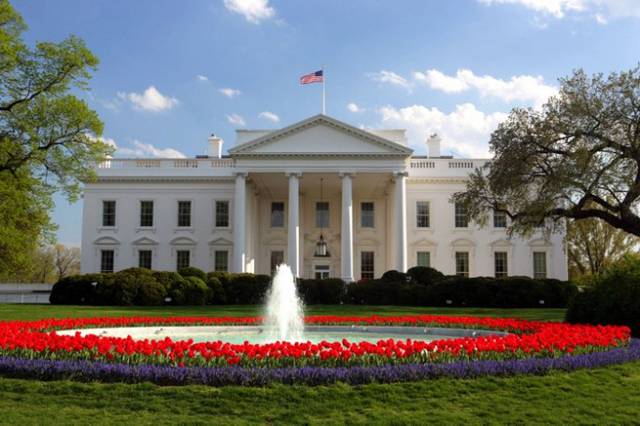Tag: Wilbur Ross
Kavanaugh. Ecco quale potrebbe essere la sua prima pratica.
Giuseppe Sandro Mela.
2018-10-12.
«Quod principi placuit, legis habet vigorem » Ulpiano, Digesta, I, 4, 1 pr.
«CNN’s ‘Reality Check’ aired a segment this morning that clearly shows the Trump administration lied when they said a controversial census question was requested by the DOJ.
When Wilbur Ross was asked why the Trump administration tried to twist the U.S. census for its own redistricting purposes, he said it was a request initiated by the Department of Justice.
Ross told the House Ways and Means Committee that the Justice Department “initiated the request for inclusion of the citizenship question.” Speaking in front of a House Appropriations subcommittee he said that the Commerce Department was “responding solely to the Department of Justice’s request” and that the Justice Department was “the one who made the request.”
Reality Check host John Avlon was quick to show the “new evidence” that clearly shows Ross’ lie.
“Newly revealed documents show that Wilbur Ross was trying to pull that off. When the Trump administration proposed adding a question about citizenship, the controversy was as swift as it was predictable,” he said.
“They are supposed to count everybody that lives in our country, regardless of their status, and critics say the goal was to undercount non-citizens. They have a clear record of taking hardline positions against undocumented residents and their children. Not so, said Team Trump. They said it was being added back to the Census for the first time since 1950 because the Justice Department needed it to help the Voting Rights Act.”» [Hill Reporter]
* * * * * * *
Vediamo un po’ se riuscite ad individuare quale potrebbe essere una delle prime pratiche costituzionali che sarà giudicata da Sua Giustizia Kavanaugh, nell’attesa che i liberal democratici vincano midterm, lo mettano sotto impeachment ed infine lo brucino sulla spianata del Campigoglio.
Sommarizziamo il problema in modo molto drastico, non se ne vogliano i giuristi, ma qui il problema è solo quello di farsi capire bene. Poi, quanti vorranno, troveranno letteratura a iosa.
*
Sostanzialmente negli Stati Uniti non esiste un documento di riconoscimento equivalente alla nostra carta di identità. Non solo, ogni stato componente la federazione ha delle sue proprie leggi ed anche una sua costituzione.
In linea generale, per poter votare è necessario registrarsi di volta in volta presso un apposito ufficio, dichiarando il proprio nome e cognome. È la registrazione che permette di accedere all’urna elettorale.
Sul problema del voter Id è incorso da decenni una bega galattica, che richiede una laurea apposita in tale materia.
Se tutti a parole convengono che il voter Id sarebbe cosa utile. Ben pochi lo vogliono. I liberal democratici lo aborriscono: dicono sia incostituzionale, discriminerebbe le femmine e farebbe venire la podagra.
Il motivo è semplice.
Il numero dei deputati al Congresso spettanti ad ogni stato sono computati sul numero dei registrati. In realtà il meccanismo è più complesso, ma così si capisce meglio. Maggiore è il loro numero, maggiore è il numero dei deputati da eleggere.
Stati come la California, rigorosamente liberal, hanno quindi proceduto all’importazione su scala industriale di immigrati clandestini ed illegali, che tutelano e proteggono come la pupilla degli occhi, perché vanno a farsi registrare, magari diverse volte con nome fantasia, e votano uniti e compatti i propri benefattori. Tanto, a mantenerli ci pensa il Governo federale.
California. 12% della popolazione e 33% sotto soglia povertà.
California ricca e democratica. Emergono brogli elettorali.
*
Al momento attuale il problema non è risolvibile da un punto di vista legale, ma i repubblicani hanno aguzzato l’ingegno.
Vorrebbero inserire nel prossimo modulo per il censimento la domanda se si sia o meno cittadini americani. Y/N. Apparentemente sembrerebbe essere una domanda non indiscreta.
Ufficialmente infatti alle votazioni dovrebbero poter partecipare solo i cittadini americani.
In questa evenienza, la cittadinanza di ogni individuo resterebbe scritta di suo proprio pugno, per gli ulteriori controlli.
Non solo.
Dalla elaborazione di questi dati emergerebbe alla fine un dato quasi certo sul numero dei deputati che spetterebbero ad ogni singolo stato.
*
Gran brutto scherzo per i liberal democratici californiani, e non solo californiani, che si vedrebbero dimezzato il numero di seggi disponibili nei distretti ove regnano sovrani.
Stime fatte allo spannometro, data la carenza di dati ufficiali, indicherebbero ad oltre una decina di milioni i votanti taroccati. Tutti rigorosamente liberal.
Adesso vi sono gli elementi per poter meglio comprendere l’articolo allegato.
«Il primo caso che Brett Kavanaugh potrebbe trovarsi ad affrontare alla Corte Suprema potrebbe riguardare l’amministrazione Trump»
*
«Secondo quanto riportato dai media americani, il Dipartimento di Giustizia si appresta a rivolgersi alla Corte per chiedere che vengano bloccate le deposizioni del segretario al commercio Wilbur Ross e del responsabile dei diritti civili del Dipartimento guidato da Jeff Sessions»
*
«Deposizioni che sono state richieste da un giudice federale di New York nell’ambito dell’azione legale contro la decisione di Ross di inserire una domanda sulla cittadinanza nel censimento per il 2020»
* * * * * * * *
Procuratore Generale NY, Schneiderman, dimissionario per abusi sessuali.
Manco a dirlo, Mr Schneiderman è un liberal democratico, strenuo difensore di tutte le verginelle conturbate dal fatto che qualcuno aveva ammirato i loro glutei, cosa terrificante specie poi se non fossero stati ricchi da ricattare, mentre poi Mr. Schneiderman usava la sua posizione di procuratore generale per degustarsi in santa pace tutte le pulzelle che gli fossero capitate tra le grinfie. Ma aveva anche un abile procacciatore di carnina fresca.
Bloomberg accusato di stipendiare assistenti dei PG con fondi per il ‘clima’.
* * * * * * * *
Adesso la Suprema Corte deciderà secondo costituzione, diritto e giustizia, ossia condannerà le tesi sostenute dai liberal democratici. E così sarà per almeno trenta anni.
→ Ansa. 2018-10-08. Kavanaugh: primo caso forse su Trump
NEW YORK, 8 OTT – Il primo caso che Brett Kavanaugh potrebbe trovarsi ad affrontare alla Corte Suprema potrebbe riguardare l’amministrazione Trump. Secondo quanto riportato dai media americani, il Dipartimento di Giustizia si appresta a rivolgersi alla Corte per chiedere che vengano bloccate le deposizioni del segretario al commercio Wilbur Ross e del responsabile dei diritti civili del Dipartimento guidato da Jeff Sessions. Deposizioni che sono state richieste da un giudice federale di New York nell’ambito dell’azione legale contro la decisione di Ross di inserire una domanda sulla cittadinanza nel censimento per il 2002. Il Dipartimento di Giustizia ritiene le deposizioni un’intrusione nell’autorità esecutiva in grado di distrarre l’attenzione dei funzionari dell’amministrazione dai loro compiti.
Trump. Questa settimana inizia in Senato la verifica delle nomine.
Giuseppe Sandro Mela.
2017-01-09.
Il Senato americano sta iniziando a vagliare le nomine proposte dal Presidente-eletto Mr Trump, come da dettame costituzionale.
La rabbia furibonda dei liberals americani è più che mai evidente.
Ciascuno dei personaggi in causa è uno strenuo oppositore di ciò che essi hanno fatto nei passati otto anni di legislazione Obama.
Dovrebbe essere cosa naturale che il nuovo eletto rinnovi e muti le linee politiche: è quello che usualmente è denominato essere il gioco democratico.
Ma a dispetto del nome che si sono dati, “democratici“, i liberals hanno ben poco di democratico: sono e restano nell’anima dei rivoluzionari.
Ma la rivoluzione altro non è che un colpo di forza di una minoranza nei confronti di un potere legalmente costituito.
Per farla in breve, i democratici si sentono colpiti non tanto in questioni di differente visione politica, quanto piuttosto nella loro Weltanschauung.
«They can delay the process, they can’t stop it. My question to them is what is the purpose for delay because they can’t stop it»
*
«Rex Tillerson, Secretary of State: Democrats will focus on his ties to Russian President Vladimir Putin and whether Tillerson can put U.S. interests first after a 40-year career focused on boosting Exxon’s shareholder value …. Tillerson has spoken out against sanctions. …. Democrats also plan to question him for hints that he would seek to overturn the Paris climate agreement to limit carbon emissions»
*
«Tom Price, Secretary of Health and Human Services: Price is a leading opponent of Obamacare and will be questioned about his plan to repeal and replace it …. Price is also an abortion opponent and will likely be asked about his votes to cut federal funds to Planned Parenthood»
*
«Scott Pruitt, Environmental Protection Agency Administrator: He joined 26 other attorneys general in suing the EPA to block the Clean Power Plan»
*
«Jeff Sessions, Attorney General: the four-term senator will face questions on his opposition to legal status for undocumented immigrants, especially those brought here as children and granted work permits by President Barack Obama»


